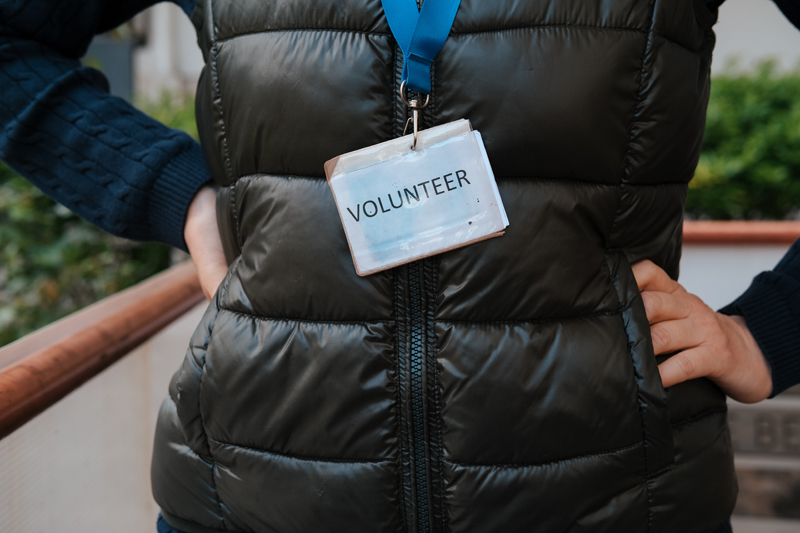It’s natural that we want to help teens develop more empathy. Feeling empathy is a critical cog in the social wheel of life. It’s the ability to experience another person’s point of view – to recognise it, understand it and want to feel how it feels. Empathy can therefore teach teens about different motivations, perspectives and drivers of behaviour.
Empathy doesn’t just help us relate to others, either. It’s the basis for co-operating, building friendships, reducing conflict and wanting to do better for those who are struggling. A strong ability to empathise is what makes a kid stand up when they see another kid getting bullied. Or comforts the kid who gets picked last for the team. Or notices when a friend isn’t feeling their best.
It’s important to help teens develop more empathy so they can understand how their own behaviour affects others. Empathy gives us the ability to think about and understand the impact of our words and actions. Without it, it’s a bit too easy to dismiss actions that cause hurt to others.
It can be hard for teens to consistently feel empathy. The areas of the brain that is associated with empathy and higher-level thinking is underused in the teenage brain. That’s not to say that teens can’t experience empathy, or even that they experience less empathy. It’s just that their brains have to work harder in order to get there.
Like any neural pathway, it’s practise that makes the brain more efficient. So, let’s provide plenty of practical opportunities so teens develop more empathy for others.

1. Tap the feelings inside
Developing empathy for others first requires recognising and understanding our own emotions. Talk your teen through their feelings and reactions to various situations. This is especially helpful when they feel hard done by or notice injustice. Teens are notorious for accusing others of doing exactly the same things they do themselves. “I hate it when X sulks,” my youngest said to me the other day, completely oblivious to her own tendency to drive us all crazy with her own sulking… sound familiar?
By drawing attention to their reactions and getting to know their own emotions better, teens become more attuned to the emotions of others. Support this emotional growth by validating their feelings (no matter whether you think it’s the ‘right’ way to feel),
2. Share your own feelings
As always, the way we are in the world is the best way to teach our kids. Use “feel” phrases, like “that makes me feel so angry” instead of “I’m so angry”. Point out other people’s reactions and open a conversation about what might have made that person act the way they have.
Also talk to your children about the way their own behaviour makes you feel. It can be as simple as saying something like, “When you talk to me that way, I feel disrespected and side-lined.”
We can also help by showing teens our own empathy for others. Point out situations where empathy and compassion have changed our perspective of others.
3. Get a dog
While the evidence is still being gathered, there is some cause to suggest that kids who have an emotional bond with a dog are more likely to be empathetic towards others. This is most helpful when your teen has the responsibility of caring for the dog. They learn to read their pet’s cues and provide a meaningful response. The needs of the dog becomes their primary focus in the moment, not their own needs.

Developing nurturing skills like these is a critical way to help teens develop more empathy. When they learn to respect and care for the dog’s needs, they will learn to respect and care for others and themselves.
4. Put their active listening ears on
Empathy begins with active listening. People tell us about how they feel and how they are coping in very subtle ways. A good active listener is on the alert for these cues.
Encourage your kids to be fully present when others speak, focusing on what is being said without interrupting or preparing their own response. They can show their interest through non-verbal cues like eye contact, open gestures (palms up or nodding when appropriate, for instance) and matching the energy of the person they are listening to.
You can also demonstrate active listening by reflecting back their thoughts and feelings when they are talking to you. This approach helps teens tune into the emotions behind what people say and the nonverbal cues they use.
5. Read far and wide
Books are a treasure chest of experiences, emotions, and diverse perspectives. Encourage your teen to read books that feature characters from different backgrounds, cultures, and circumstances. Reading stories of resilience, compassion, and overcoming adversity can stimulate their imagination and broaden their understanding of the human condition.
Engaging with books like this nurtures empathy by allowing teens to experience the world through the eyes of others. You can support this by role-playing scenarios where they assume different roles and identities from the book they’ve just read.
6. Participate in the community
This is actually one of the easier ways to help teens develop empathy for others. Volunteering and community service provide teens with direct opportunities to meet those facing challenges and adversity. Whether assisting the homeless, volunteering at shelters, or supporting local initiatives, teens can bear witness to a diverse range of lives.
To find out how your teen can help out in your local area, visit The Centre for Volunteering or Go Volunteer. Or ask at school, the local library or contact your council.
These experiences foster a sense of responsibility, compassion, and understanding for those less fortunate, building empathy in the process.

7. Practise RAOK
Random Acts of Kindness might feel like a total engineered cliché at this point, but don’t let that stop you. Spreading kindness in our daily life is essential for the wellbeing of others (and our own). It also fosters an empathetic attitude because it pulls the focus to others, not yourself. Research has found that acts of kindness, especially towards strangers, can boost a teen’s self-esteem.
This will come as no surprise to any parent of teens. Teens today are reluctant to engage with anyone they don’t know, so a simple kind act can help them develop this important social skill. The great thing is, the higher the self-esteem, the more likely people are to show empathy towards others.
8. Develop cultural appreciation
Give your teens plenty of opportunities to explore different cultures, traditions, and belief systems. Learning about diverse backgrounds helps us appreciate the richness of human experiences. It’s good to learn that everyone has different reference points and therefore approaches life from a unique perspective. Cultural norms and mores are a big part of that.
Take your kids to cultural festivals and ask lots of questions. Watch subtitled movies together and talk about how the culture represented differs from your own. Ask your child whether the movie would be the same if it was told in your own country.
9. Nurture empathetic friendships
Positive peer influences can reinforce the value of empathy and compassion in teen lives. These kinds of empathetic friendships provide a supportive network that allows them to share their thoughts and emotions without judgment, fostering deeper connections and emotional growth.
It can definitely be hard to form these kinds of friendships in your teens, but not impossible. At least make sure your teen knows that empathetic friendships are the goal. That means friendships with the kind of people we feel comfortable to be ourselves around. Who don’t judge or belittle our choices or our actions. Who allow us to freely express our feelings and dreams without fear of being put down.
In other words, friendships with people who have bucketloads of empathy.
Feature image by Dim Hou; mirror by Belle Collective; dog Unsplash+ / Getty Images; volunteer Unsplash+ / Esra Afşar

